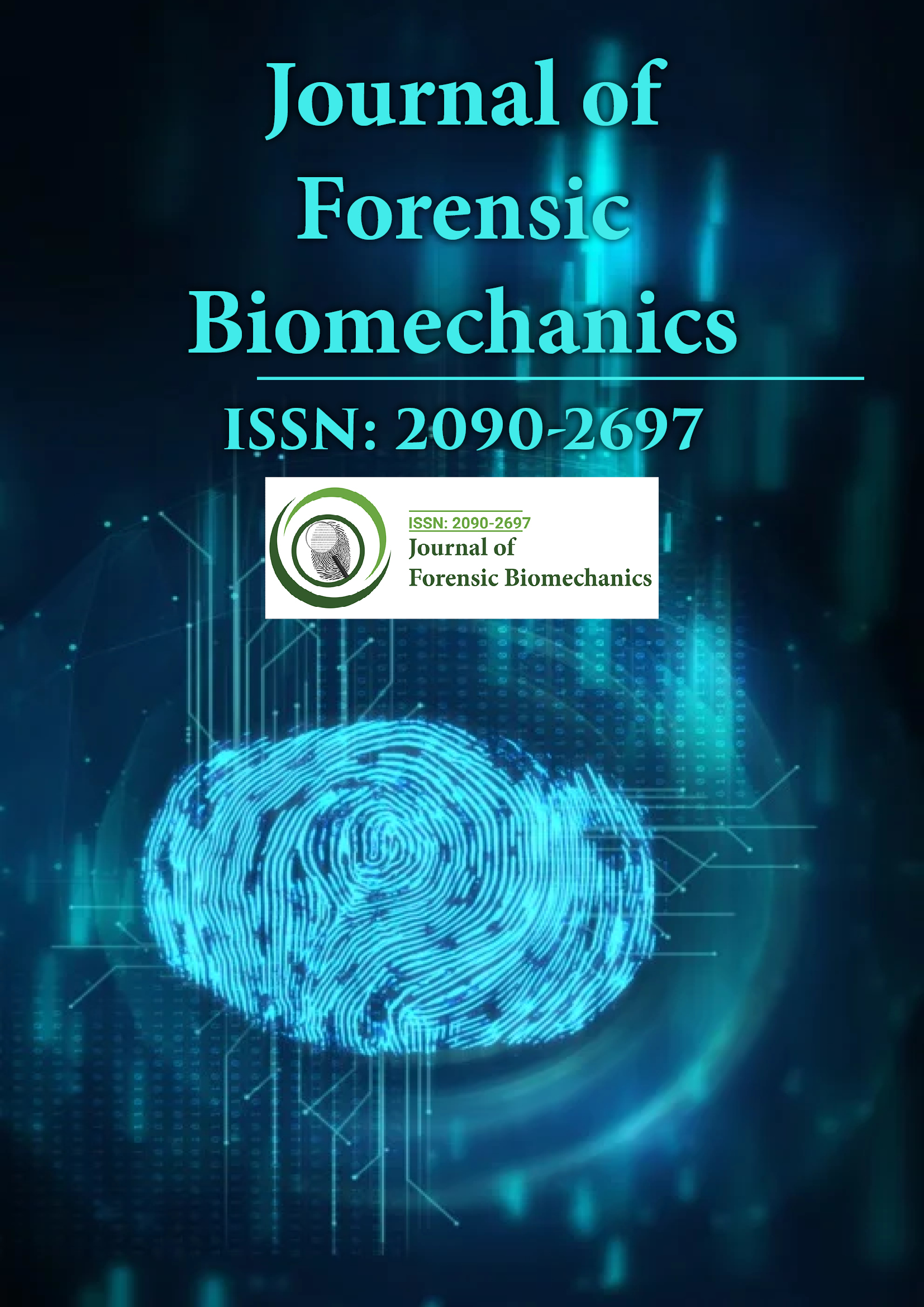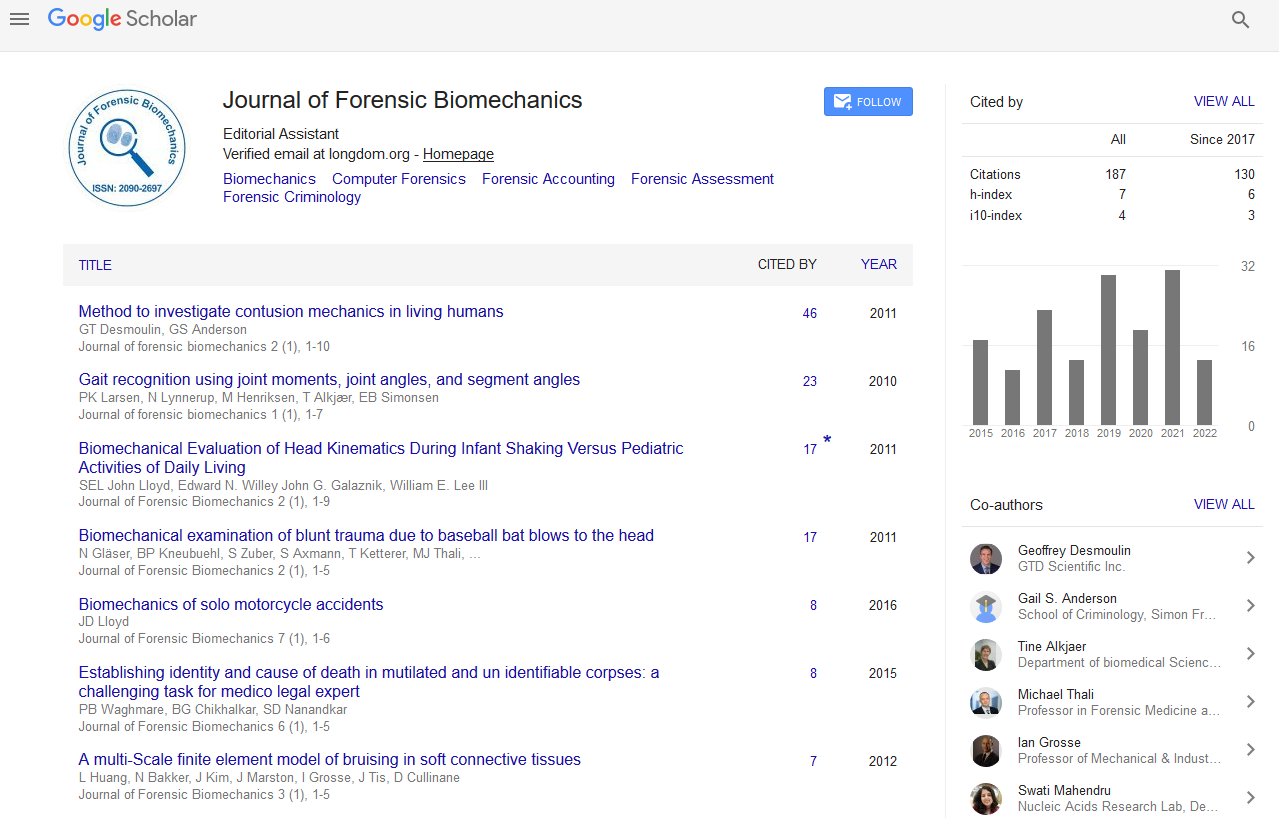Indexed In
- Genamics JournalSeek
- SafetyLit
- Ulrich's Periodicals Directory
- RefSeek
- Hamdard University
- EBSCO A-Z
- Geneva Foundation for Medical Education and Research
- Euro Pub
- Google Scholar
Useful Links
Share This Page
Journal Flyer

Open Access Journals
- Agri and Aquaculture
- Biochemistry
- Bioinformatics & Systems Biology
- Business & Management
- Chemistry
- Clinical Sciences
- Engineering
- Food & Nutrition
- General Science
- Genetics & Molecular Biology
- Immunology & Microbiology
- Medical Sciences
- Neuroscience & Psychology
- Nursing & Health Care
- Pharmaceutical Sciences
Editorial - (2021) Volume 12, Issue 4
An Overview of Forensic Psychology
Steven Barry*Received: 02-Sep-2021 Published: 23-Sep-2021, DOI: 10.35248/2090-2697.21.12.e113
Description
Forensic psychology is that the department of psychology worried about the manufacturing and application of mental expertise and standards inside the prison process. Forensic psychology may be a younger discipline; Psychology and law are interlinked since the dawn of recorded history. Today there is also infrequently an area of the law wherein mental professional testimony is not being applied and there could also be absolute confidence that forensic psychology has made massive contributions to the execution of justice.
In civil and criminal matters, forensic psychologists can evaluate individuals to determine issues such as competence to appear in court, the association of a mental disorder with an accident or crime, and the possibility of dangerous behavior in the future. In addition to conducting interviews and psychological tests, they often collect forensic medical history, which includes information such as hospital records, police reports, and testimonies. In addition, an understanding of the relevant legal issues is expected. In a custody case, a forensic psychologist may be asked to evaluate the home environment, parents, and character of the child to recommend a custody decision in the best interest of the child.
Forensic psychology describes this field because of the application of psychology to questions of law and also the system. Interest in forensic psychology has increased significantly in recent years. The exercise of forensic psychology includes investigations, studies, assessments, consultation, the layout and implementation of remedy applications and professional witness court testimony. Several traits within the mid1990 contributed to the boom of forensic psychology and psychiatry. One main improvement was that social technology briefs had been utilized in numerous crucial felony instances for the duration of the first to the mid20th century. Consequently, the forensic psychologist regularly is an expert witness in court. The sports of forensic psychologists contains the evaluation of competency to face trial and crook responsibility, deciding the validity of defenses predicting violent behaviour, assessing eyewitness testimony and personal injury, offering testimony on suitable sentencing, profiling, and contributing to baby custody evaluations.
The maximum critical forensic evaluation tactics are the forensic interview and psychological testing, at the identical time as forensic hypnosis is likewise once in an exceedingly while used. Because reliability is questioned, the polygraph is seldom employed. The seldom of forensic psychology could also be expanded via way of means of the simplest research, supplying goal and crucial evidence, and knowing that there are regions wherein the contribution of forensic psychologists is questionable.
The boom of forensic psychology resulted in the inception of forensic psychology’s first expert affiliation in1969, the American Psychology-Law Society. APLS has almost 3000 participants and is that the maximum distinguished expert institution for psychology and regulation experts in North America, and it operates as each a free status company and as Division forty-one of the American Psychological Association. The world of forensic psychology has additionally been identified as vicinity of experience vicinity through the American Board of Professional Psychology, and forensic psychologists can earn Board Certification from the American Board of Forensic Psychology.
This paper discussed that interest in forensic psychology has increased significantly in recent years. Forensic psychology's first expert affiliation was formed in 1969, the American Psychology- Law Society. The sport of forensic psychologists contains the evaluation of competency to face trial and crook responsibility. Because reliability is questioned, the polygraph is seldom employed.
Citation: Barry S (2021) An Overview of Forensic Psychology. J Forensic Biomech. 12(4):e113.
Copyright: © 2021 Barry S. This is an open-access article distributed under the terms of the Creative Commons Attribution License, which permits unrestricted use, distribution, and reproduction in any medium, provided the original author and source are credited.

